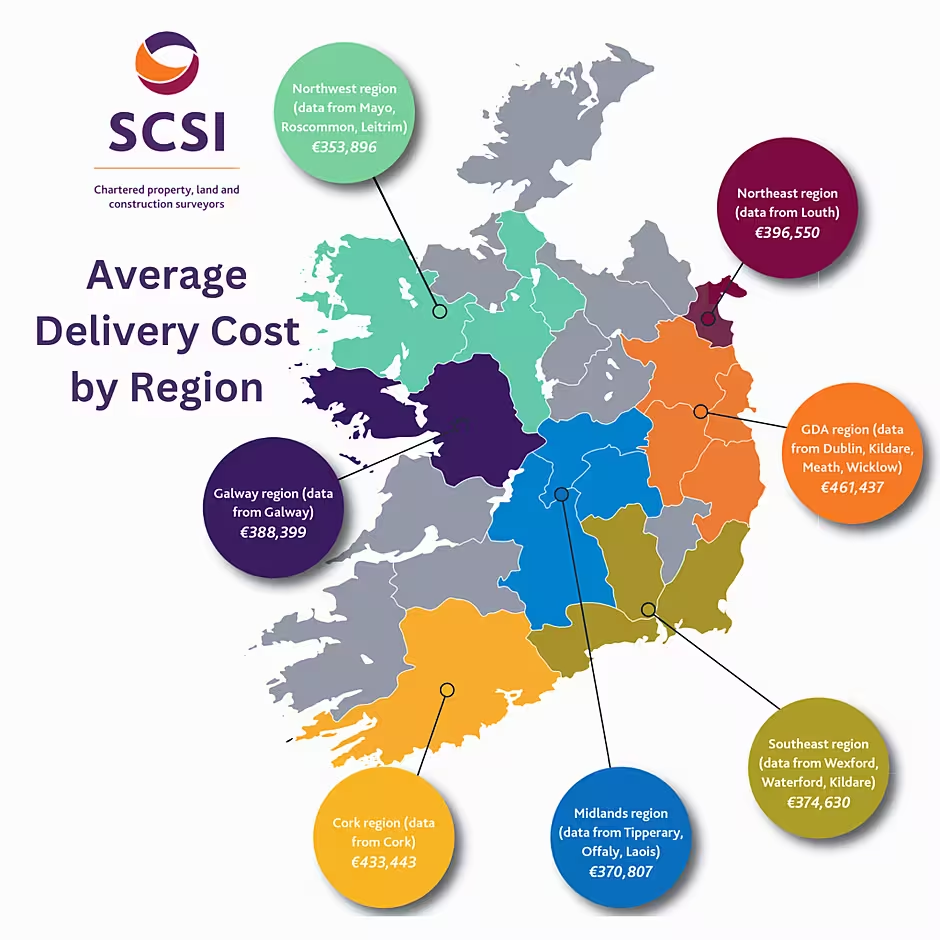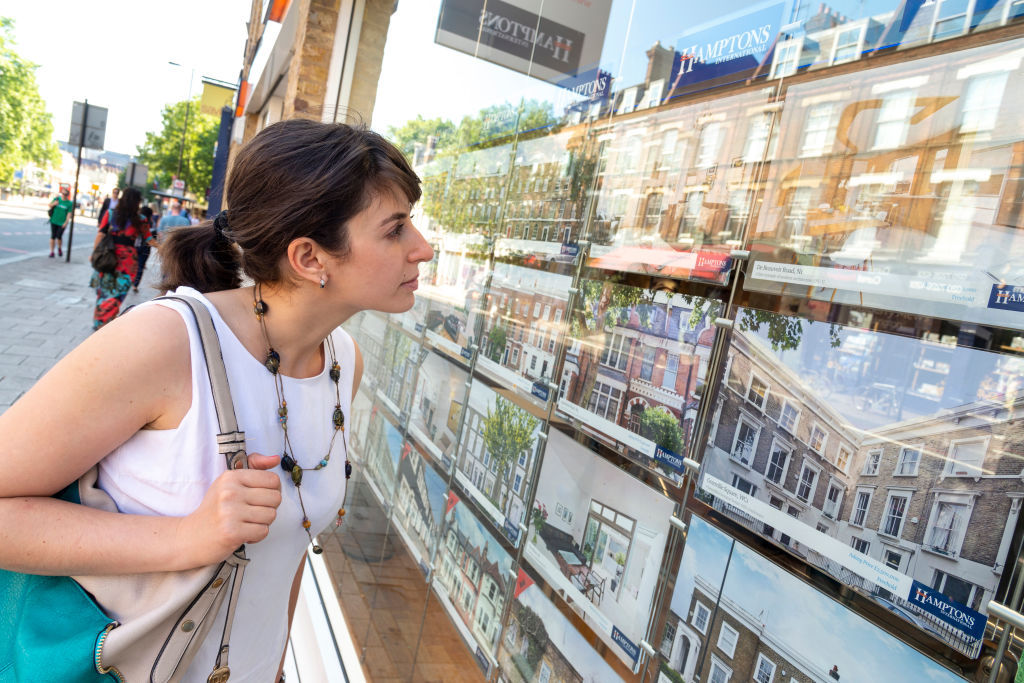The average cost of delivering a new 3 bed semi-detached house in Ireland now stands at €397,000.
That’s according to a new report from the Society of Chartered Surveyors Ireland (SCSI), titled ‘The Real Cost of New Housing Delivery 2023’.
The report found that the average cost to build a 3 bed semi-detached home in Ireland ranges from €354,000 in the North West to €461,000 in the Greater Dublin Area, where costs have increased by on average 24% or €90,000 since the last report over three years ago.
Excluding Dublin, the average cost across the rest of Ireland is €386,000.
This means that buyers would need to have a combined minimum salary of €127,000 to buy a new 3 bed home in the greater Dublin area or €85,000 to buy in the North West.
As a national average, hard costs which include materials and house building costs make up 53% of overall delivery costs while soft costs – land, margin, levies, finance costs, VAT, etc – make up 47%.
The SCSI said that higher energy, fuel and building material prices were driving up hard cost increases while soft cost increases were down to land costs, higher finance costs due to interest rate increases and an uplift in professional fees.
Chartered Quantity Surveyor Micheál Mahon, one of the report’s authors, said the impact of Covid and the conflict in Ukraine have been the main contributors to the increase in ‘hard costs’ over the past two years.
“‘Hard costs’, which includes house building costs, siteworks, and site development, ranged from just over €198,000 in the Northwest region to just over €228,000 in the GDA, representing approximately a 15% differential.
“The main hard cost drivers have been energy, fuel, and shipping costs. The cost of various building materials, particularly concrete, insulation, electrical and plumbing products, steel reinforcement, and timber products, also increased dramatically. Nationally, ‘hard costs’ now comprise 53% of the total costs of overall delivery, while ‘soft costs’ make up the remaining 47%. However, in the GDA, this balance shifts to 49% ‘hard costs’ and 51% ‘soft costs’. While cost inflation has increased very significantly in recent years, recent SCSI surveys indicate prices are levelling off.
“’Soft costs’ range from approximately €156,000 in the Northwest region to just over €233,000 in the GDA. The primary soft cost drivers have been land costs, financing due to higher interest rates, levies and an uplift in the cost of professional fees. On a national basis, land and acquisition costs (per unit) equate to 13% of overall delivery costs on average.”
The President of the SCSI, Enda McGuane, said that the report recommends that more needed to be done to support Modern Methods of Construction, pause future increases to connection charges and levies, as well as ensure the planning process is fit for purpose to de-risk development and bring down cost, which potential homeowners ultimately pay.
“While there has been a significant increase in the supply of new housing towards current ‘Housing for All’, it is important that we update those targets considering Ireland’s population increases. ‘Housing for All’ targets were based on the 2016 census, and the population has grown by 8%. Therefore, targets need an immediate revision based on the most up-to-date census figures,” he said.
“When setting and committing to new targets, we would also urge the Government to establish new targets for the number of units delivered by off-site construction. This will facilitate a more efficient and sustainable use of resources through the rollout of Modern Methods of Construction.
“Increasingly, we are seeing the viability of developments that receive planning permission impacted by design or density requirement conditions. We believe financial viability should be required within the planning permission process, especially concerning planning conditions imposed as parts of grants. The SCSI welcomes proposals to increase densities within new housing estates in the draft Sustainable and Compact Settlements Guidelines to help make suburban sites more viable by reducing the requirement for expensive apartment buildings in such estates.
“On the cost side, we would like to see the continued pausing of development levies made a long-term policy while improvements must be made to the utility connection process to reduce costly and time-consuming delays.
“The affordability scenarios included in this report show the First-time buyer challenges in certain locations. The SCSI believes the Department of Housing, Local Government and Heritage should review the First Homes Scheme purchase price ceilings to ensure the shared equity scheme is accessible to average market values for each county. The price ceilings should then be adjusted in line with construction inflation to avoid the ceilings becoming inaccessible in the future,” said Mr McGuane.






